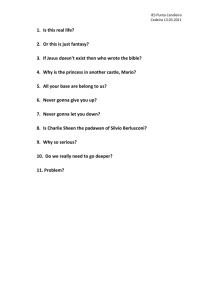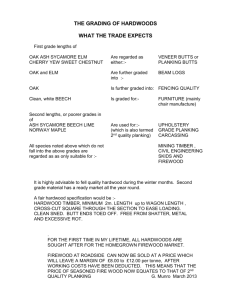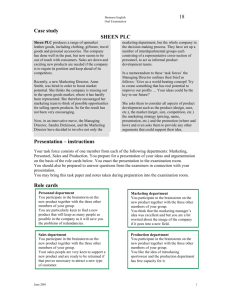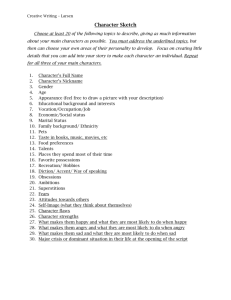2011: Year in Review
advertisement
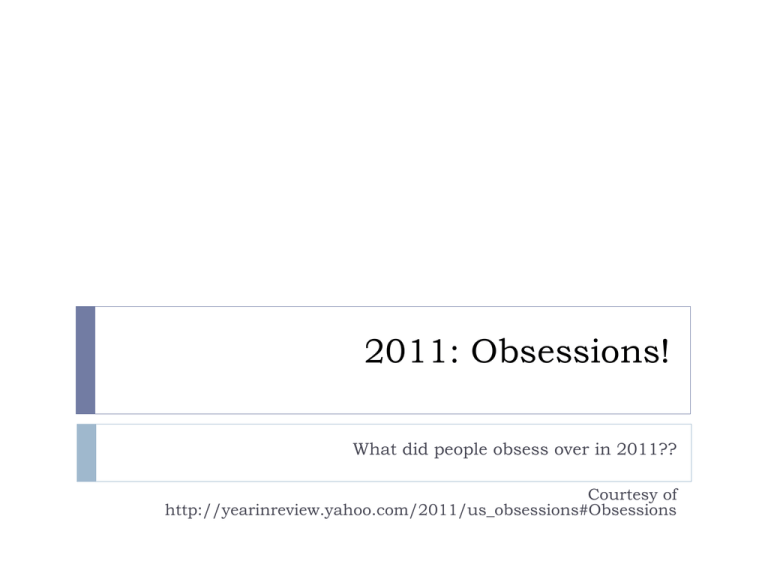
2011: Obsessions! What did people obsess over in 2011?? Courtesy of http://yearinreview.yahoo.com/2011/us_obsessions#Obsessions 1. Charlie Sheen When Charlie Sheen was rushed to Cedars-Sinai Medical Center complaining of "severe abdominal pains" on January 27, 2011, it looked like one more step toward a total meltdown. The next day, production halted on his hit CBS show, "Two and a Half Men," as its 45-year-old star entered rehab. Angered by the delayed production, he hurled choice insults at producer Chuck Lorre. The stunt got him suspended and, ultimately, fired from the show. Sheen declared open season on Lorre, uploading erratic online rants and filing a $100 million wrongful dismissal suit. He invited media into his home, the Sober Valley Lodge, where he lived with his "goddesses," porn star Bree Olson and former nanny Natalie Kenly. He dismissed the worries of his famous father, Martin Sheen (who said "This disease of addiction is a form of cancer") as "bollocks." He plunged into the media circus, throwing out lines with the high-speed patter of an infomercial pitchman: "I am on a drug -- it's called Charlie Sheen," he told "20/20." "It, uh, it's not available, because if you try it once you will die. Your face would melt off and your children would melt over your exploded body. Too much?" Then things took a turn for the (even) weirder. Estranged wife Brooke Mueller filed an emergency restraining order in March. The move prompted Sheen to utter one of his many famous new catchphrases: "winning." That, plus "tiger blood," "Adonis DNA," and "warlock" would enter the public lexicon -- and break a Guinness World Record when Charlie's Twitter feed reached one million followers in just over 25 hours. On April 2, the Emmy-nominated actor launched his Torpedo of Truth tour, earning more jeers than cheers. By spring the tide had turned: The goddesses left the building ("Sheen dumped" trended for days on Yahoo!), and Ashton Kutcher was announced as Sheen's TV replacement. Thus began Sheen's "torpedo of damage control" tour. The actor publicity apologized, settled his lawsuit, and even reconciled with his estranged ex-wife, who was by his side when Comedy Central roasted the actor in its highest-rated special ever. The special also reunited son and dad in the teaser spoof, "Charpocolypse Now." 2. The Rapture The end of the world came on May 21, 2011, and again on October 21. Tough times can beget obsessions with end times. Natural disasters, for instance, shake the doomsayers loose online, as do political shifts, blockbuster thrillers, Mayan prophecies, and a Dolly Parton song. Those two 2011 dates, though, figured in a Biblical calculation of when the rapture would come. Radio evangelist Harold Camping had been broadcasting his beliefs on his Family Radio network, based in Oakland, California, since 1959. The nonprofit enterprise with stations nationwide has earned about $80 million between 2005 and 2009, although Camping himself always claimed to be an unpaid volunteer. Followers, some selling their worldly possessions, did their best to alert the faithful via 5,000 billboards and RVs broadcasting gaudy messages across 30 countries. The fair warning cost about $100 million, reported the Los Angeles Times, also "financed by the sale and swap of TV and radio stations" that would be moot on May 22. The apocalypse, Camping claimed, would take the form of a massive earthquake starting in New Zealand. The world would self-destruct over five months, enduring "plagues, quakes, wars, famine, and general torment before the planet's total destruction in October." End times, of course, have an upside, called the rapture, when the righteous -- 2 to 3% of mankind -- get delivered up to heaven and the nonbelievers get left behind. Latter days spurred online searches for "judgment day," "May 21 2011 rapture," "May 21 2011 end of world," "Harold Camping May 21 2011," and even competing end times like "Mayan calendar 2012." They also provoked secular counter-programming: The American Atheists threw rapture parties on May 21 and 22, the biggest in Oakland, a hop, skip, and a jump away from Family Radio's offices. 3. “Friday” by Rebecca Black What song comes before Saturday and after Thursday? Why, the "worst song ever,"according to countless critics, bloggers, and online viewers across social media. The inane lyrics, nasal vocals put through Auto-Tune, and hilariously awkward acting in the music video made Rebecca Black's song "Friday" one of this year's most unexpected obsessions. For those of you who somehow managed to avoid the Internet sensation, Rebecca Black was a 13-year-old girl whose mother paid $2,000 for a song and video to be made for her. The cheesy video became almost instantly omnipresent. Everyone had an opinion, from Lady Gaga and Simon Cowell to Fox News commentator Bill O'Reilly. But the online masses put Black under some of the fiercest and most widespread scrutiny in recent memory. "Friday" surpassed Justin Bieber's "Baby" as the most hated video on YouTube. Black even had to be pulled from school after multiple death threats forced the FBI to get involved. 4. Mortgage Rates Five years after the housing market peaked, the obsession with mortgages rates went up, but the appetite for home ownership and home buying declined. Throughout the year, existing home sales generally rose compared with 2010, although in the first 10 months of 2011, new home sales were off 6.9% from the first 10 months of 2010. Thanks to foreclosures, slower family formation, and the rising appeal of renting, the home ownership rate continued to decline in 2011, standing at 66.3% in the third quarter, down from the peak of 69% in the third quarter of 2006. But that doesn't mean people lost interest in their mortgages. After all, for those with homes, mortgages represent the largest single bill, a major source of concern and anxiety -- and, in some instances, an opportunity to reduce cost in this age of muted income growth. What's more, the mortgage market is the place where personal finance, government policy, Wall Street, and the larger economy meet. So, it's no surprise that mortgage rates were one of the most frequently searched terms on Yahoo! in 2011. Generally, mortgage rates remained low and trended lower through the year, with 30-year mortgages often heading toward the 4% market, as Bankrate.com showed. The low headline numbers attracted a great deal of consumer interest. But the devil was frequently in the details. Many borrowers simply weren't eligible for the low rates flagged in advertisements, especially if they had less-than-pristine credit or didn't have enough equity in their homes. That continued to be a major sticking point, as housing prices continued to fall throughout 2011. Zillow reported that in the third quarter, some 28.6% of home owners were underwater on their mortgages, meaning the homes were worth less than the amount of debt resting on them. 5. Extreme Couponing If the daily discounts that flooded our inboxes have demonstrated anything, it's that frugality has become more than a recession watchword. In 2011 frugality was a way of life, even a calling for some. Indeed, the recession that started in 2008 brought with it a culture of frugality. You may have heard of "austerity chic" or the catchphrase "cheap is the new black"; these ideas promised to stick around beyond the current economic slump. The country's recent thriftiness transformed traditional pennypinching -- say, clipping a few coupons from the Sunday newspaper -- into extreme sport. After a brief lull, coupon redemption was up 4% in the second quarter of 2011 compared with the same period in 2010, according to Inmar, a company that processes coupon transactions. The reality show "Extreme Couponing" on TLC followed serious shoppers as they combined store sales, manufacturers' coupons, and rebates to whittle down grocery bills to almost nothing. Scouring circulars and printing out online coupons meant financial survival for some. For others, though, the quest to save a few bucks at the cash register morphed into obsession, raising the question of whether these extreme couponers were just hoarders disguised as savvy budget-seekers. Katherine, a super-couponer featured in one episode of the show, amassed a $30,000 stockpile that included 200 boxes of pasta, 60 boxes of tissues, and her most "prized possession": 400 rolls of paper towels. The show spawned its own mini industry. Dozens of websites allowed users to share deals, post coupons, and show off snapshots of their abundant pantries. Master couponers like the Krazy Coupon Lady taught the masses how to save like pros. There were how-to books and even classes (one $19.99 70-minute DVD promised to teach you how to cut your grocery bill by 50-70%). 6. Angry Birds Pickle-green pig faces meet their matches in the form of wingless, decidedly non-aerodynamic birds. Said birds are hurled through the air by slingshot, sending them crashing into bricks and blocks. A proper trajectory that causes a proper collapse ends all oinking. If you have no idea what any of that means, you've somehow managed to avoid the phenomenon that is the app known as Angry Birds. Even if you haven't played it, anyone with access to electronic media should have a vague notion of what the game involves. In early November, the game's maker, Finland-based Rovio, said Angry Birds had been downloaded 500 million times since its release on the Apple iPhone in December 2009. That's right: half a million downloads. Women and men are addicted. Young and old can't put it down. While it's not for everyone, Angry Bird-flingers don't have to be convinced that there's something pure, fascinating, and downright fun in pitting species vs. species in a little wholesome destruction. The incredibly successful run has inspired an entire cottage industry. Toys have followed. Movie deals are in the works. Venture capitalists had to woo the makers to take $42 million in funding. One of the avian cast members had a side gig as an unofficial mascot for St. Louis Cardinals fans during this year's playoffs. Conan O'Brien and Andy Richter played a real-life version on set. People dressed as them on Halloween. They have a taxonomy. Explaining the extraordinary popularity of Angry Birds isn't easy. If you're a player and you try describing it to someone who isn't, you probably know this. If you've never tried, do it. And don't be surprised if you're met with an "I just don't get it." A year ago, in a profile on the game, the Wall Street Journal asked, "Why do smart people love seemingly mindless games?" Maybe we should just agree that it's OK to not know and to say that what's fun is fun. 7. Planking In the fitness world, a "plank" is a move designed to work your core. The 2011 planking trend, however, did nothing for our cores (or our dignity), but it was addictive. Lying face-down on the ground may sound more like a police procedure than a fad. Yet curiously, the position riveted the public's imagination around the globe. Being prone was cool -- supine, not so much. The fad came from Australia, like boomerangs, black-box flight recorders, and planes' inflatable escape slides. Gawker traced the trend back to a 20-something man named Sam Weckert, who planked on dance floors as a prank. His Australian nightclub act, though, may have been a riff off the English Lying Down Game, which, its founders pointed out, had a copyright and a logo. Miffed Brits notwithstanding, planking -- like a stiff board, get it? -- sounded so much catchier than the Lying Down Game. And credit for its global popularity should be given to Aussie radio-show hosts always looking for a shtick (in this case, a planking contest). Planking is not as simple as it sounds. The "official site" laid down six rules: You must lay face down, "expressionless," with legs straight, arms at your sides, fingers and toes pointed. Make your planking known, and name the plank. The unspoken rule: Take a photo or video and post it online. 8. “Game of Thrones” If you focused only on the literary side of things, 2011 would have been a fantastic year for George R.R. Martin's series, "A Song of Ice and Fire." The epic fantasy saga began in 1996, with Martin -- a veteran of both fiction and television writing -- penning thousand-page tomes that led some fans to herald him as the American Tolkien. Set on the fictional continent of Westeros, Martin's series mixed in a little magic with a lot of good old-fashioned medieval warfare and palace intrigue. After a long wait, the fifth book in the series, "A Dance With Dragons," was released in July, selling nearly 300,000 copies on its first day. But 2011 ended up being the year a new audience found its way into Martin's fictional world, as HBO premiered the drama "Game of Thrones," named after the first book in the series. Following in the hallowed Sunday-night footsteps of "The Sopranos," "Deadwood," and "The Wire," "Thrones" was a commercial and critical success. HBO ordered a second season after only one episode had aired, and the number of viewers increased during the season, eventually totaling 8 million. 9. Government Shutdown The national debt hit $14.9 trillion in 2011 and threatened to bring the government to a halt. As long as the U.S. operated at a deficit, spending more than it was taking in, the government had to borrow -- and how much it could borrow was limited by the debt ceiling, one of the biggest search terms of 2011. Determining how much of a bill we should be allowed to amass for our children's children became a major political priorityso much that politicians risked a government shutdown and a default while they experimented with the math, ultimately sparking a controversial downgrade to the U.S. credit rating. By September 30, 2010, Congress was supposed to pass a budget for fiscal year 2011, which ran from October 2010 to September 2011. A string of so-called continuing resolutions -- legislation to fund government agencies and avoid a shutdown if a budget hadn’t been reached -- kept things operating through early April. On April 8, with just about an hour before a shutdown would begin, lawmakers agreed to a compromise to keep the government open through the end of the fiscal year. "We didn't do it at this late hour for drama; we did it because it's been very hard to arrive at this point," Senator Harry Reid (D-Nev.) said. But there was one hard choice lawmakers didn't figure out: They passed a budget without voting to increase the debt ceiling. Despite hours of negotiations in closed rooms, President Obama refused to agree to the Republicans' demands for steep spending cuts, and Republicans threatened to hold their Montblancs until the government defaulted. Again, Americans were strung along until the last minute. On August 2, the deadline by which the U.S. would default on its debt if the ceiling wasn't raised, lawmakers passed the Budget Control Act of 2011. It added $2.1 trillion in head space to the ceiling, but the law also called for discretionary spending caps to trim the deficit by $1 trillion over 10 years and created the United States Congress Joint Select Committee on Deficit Reduction, charged with finding $1.5 trillion more in cuts (or new revenue). 10. Tiger Mom If the Wall Street Journal hadn't titled its January 8 interview with Amy Chua "Why Chinese Mothers Are Superior," the Yale professor's book ("Battle Hymn of the Tiger Mother") might have never hit a nerve. But such a Murdochian headline was bound to get attention -- pricklish, divisive, and heated attention. That supercilious claim of cultural superiority came at a time when war-weary superpower America was battered from economic implosion. It didn't help that China owned $1.154 trillion of our debt (incidentally, that number has dropped since January). Compared to other developed countries, the U.S. scored below average in international standardized tests. (Shanghai kids took the tests for the first time in 2010 and stomped into global first place in science, reading, and math.) Then there was the broader tiger theme that would develop in 2011, but we're getting ahead of ourselves. Chua unveiled the militant expectations of filial piety as interpreted by Asian Americans. She said that the Chinese mother was just one trope that could be substituted with the Irish blue-collar dad, the Polish mother, or Stephen Colbert. Still, playing the race card had an effect: Thousands of comments poured in from Wall Street Journal readers -- not necessarily readers of Chua's book -- who praised and condemned the audacity, the stereotyping, the humor, the obsessivecompulsiveness. Reaction was also divided in the Asian diaspora, from PTSD flashbacks to bristling resistance to yet another dragon lady stereotype. The publicity launched a thousand memes. But all good books jump-start thoughtful, impassioned discussions. "The Help" -the book and the movie -- inspired similar reactions about race, parenting, and domestic servitude in the American household. The tiger mom was a flash point that led us to talk openly about "our fears about losing ground to China" (Time magazine), and how American kids could be tough if parents let them be (per Atlantic magazine's "How the Culture of SelfEsteem Is Ruining Our Kids"). As one NPR book critic put it, "Western parents are concerned about their children's psyches. Chinese parents aren't." A London Telegraph columnist went further: "Amy Chua's philosophy of child-rearing may be harsh ... but ask yourself this: Is it really more cruel than the laissez-faire indifference and babysitting-by-TV which too often passes for parenting these days?" 2011 Obsessions What did people obsess over in 2011?? Courtesy of http://yearinreview.yahoo.com/2011/us_obsessions#Obsessions Compiled and Submitted by: Kailynn Barbour Rutgers University

